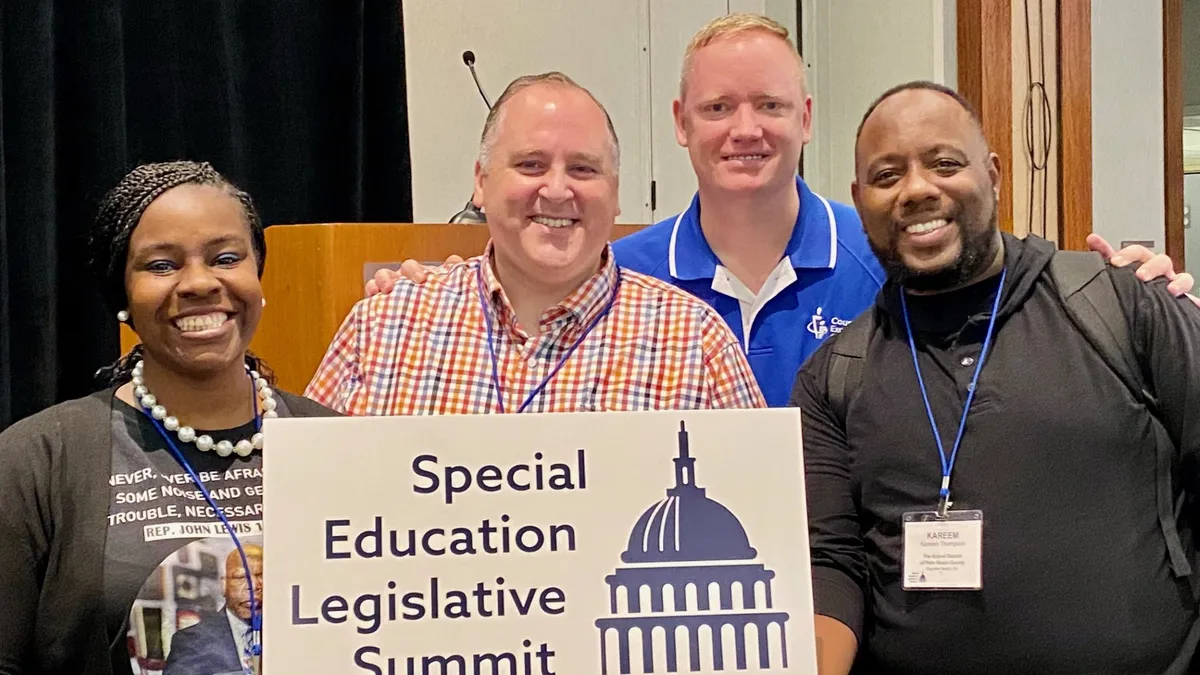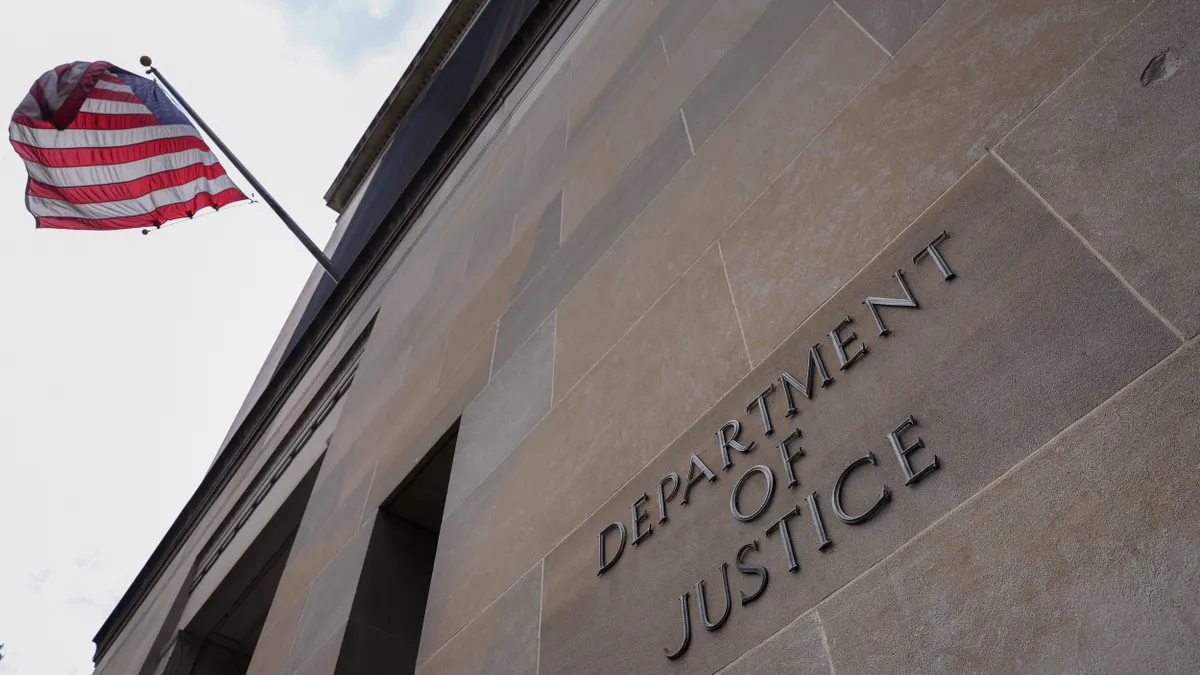ALEXANDRIA, VA. — Special education professionals visited congressional offices in Washington, D.C., this week to advocate for more funding to support services for students with disabilities, address special educator shortages and build positive school climates.
The visits to Capitol Hill were part of the annual Special Education Legislative Summit hosted by the Council for Exceptional Children and the Council of Administrators of Special Education. About 300 special education directors, professors, graduate students, consultants and other stakeholders attended this year's summit, according to event organizers.
Despite a politically charged atmosphere in Congress, special education issues historically have drawn bipartisan support, and several summit attendees said they felt heard by their representatives or staff during their office visits.
A highlight of the summit was "when all of our members were up on Capitol Hill, they were very well received," said Phyllis Wolfram, executive director of CASE. "I think they [summit attendees] were truly understood about the issue of educator shortages."
Still, veteran summit attendees acknowledged that legislative policy work is a long game, which can be a "slog," said Myrna Mandlawitz, a legislative consultant for CASE.
The strategy for this advocacy work is to make connections between the special education community and legislators and to share specific stories about the challenges and accomplishments of schools and districts, event organizers said.
"We have to keep pushing and pushing," Wolfram said. "We need to let our representatives know the good things that are happening in public education today."
Here are more details on the three legislative priorities attendees advocated for:
Educator shortages
All but two states reported a shortage of special education teachers in the 2020-21 school year, and special educators leave the teaching profession at nearly twice the rate of general educators, according to CEC and CASE.
The shortage amounts to a crisis, according to Carrie Turner, a senior improvement consultant for Missouri's Kansas City Regional Professional Development Center and a former special education director.
Turner, a member of the CASE executive committee, said only one of 15 school districts represented at a recent regional meeting of special education directors had all positions filled.
"That is so unusual compared to just a few years back," Turner said. "I mean, this time of year, to have teacher openings is unheard of."
The main concern with teacher shortages is that students may not be receiving all of their needed individualized services, she said. "We all know that we're doing a lot of really, really good things with our students with disabilities, and we want to be able to maintain that."
CEC and CASE members are asking federal legislators to invest more money in personal preparation programs, including for the Augustus F. Hawkins Center of Excellence Program. Hawkins is a federal grant program focused on diversifying the educator workforce by supporting teacher preparation programs at Historically Black Colleges and Universities and tribal colleges and universities.
Appropriations
The organizations are asking lawmakers to invest at least $16.2 billion for Part B state grants for the Individuals with Disabilities Education Act. The fiscal year 2023 appropriation is $14.2 billion. The additional funding is needed, CEC and CASE said, to provide high-quality targeted and individualized services to an increasing number of students with disabilities.
Advocates also continue to push the federal government to pay at least 40% of the additional per-pupil costs for serving students with disabilities, known as "full funding." The current federal contribution is about 12%, according to CEC and CASE.
Summit attendees said they were hopeful about legislation filed in the House and Senate Monday that would require mandatory annual increases to IDEA allocations over the next 10 years until 40% of funding is reached. The legislation came from Sen. Chris Van Hollen, D-Md., and Rep. Jared Huffman, D-Calif. According to a news release from Van Hollen, who has introduced similar bills since he entered Congress in 2002, the House bill has a few Republican co-sponsors.
Mental health
An additional $428 million is needed for the school-based Mental Health Service Professional Demonstration Grant program to address shortages of school psychologists, social workers and counselors, the organizations said.
Chad Rummel, executive director of CEC, said mental health approaches must include not only crisis response but also preventative services and supports. In May, CEC convened national school mental health experts to identify areas of collaboration and approaches to sustainable mental health supports. That work is ongoing, Rummel said.
According to CEC and CASE, 1 in 6 children have a mental health condition, but only half receive mental health supports. The organizations also said that from 2019 to 2020, children with behavior or conduct problems increased by 21%.





















